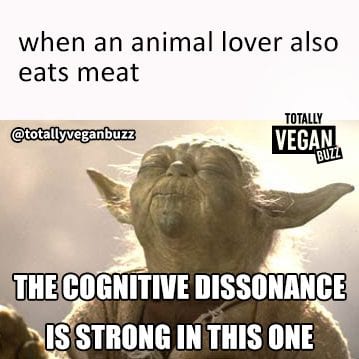
Numerous studies have documented the cardio-metabolic health benefits of plant‐based diets; this new study published in the Journal of the American Heart Association corroborates these findings.
Researchers explain that eating more vegetables, legumes, nuts, and whole grains and fewer animal products may increase your lifespan by not only decreasing your risk of dying due to a heart related complication by 32% but you’re also 25% less likely to die from any other lifestyle related diseases.
Heart related conditions affect about 5.7 million people in the United States and approximately 26 million people worldwide leading to experts referring to these health issues as a “global pandemic.”
The Study
Casey M. Rebholz, Ph.D., assistant professor at Johns Hopkins Bloomberg School of Public Health in Baltimore, MD, lead the study; she and her colleagues examined data collected from 12,168 middle aged people enrolled in the Atherosclerosis Risk in Communities (ARIC) project that clinically followed the participants between 1987 and 2016.
The researchers of the study using four established diet indexes: plant‐based diet index (PDI), healthy plant‐based diet index (hPDI), less healthy plant‐based diet index (uPDI), and provegetarian diet index, assessed participants’ degree of adherence to plant‐based diets.
- In the PDI and provegetarian diet indexes- higher intakes of all or selected plant foods received higher scores
- In hPDI- higher intakes of only the healthy plant foods received higher scores
- In uPDI- higher intakes of only the less healthy plant foods received higher scores
The data was statistically analyzed using the clinically established three Cox proportional hazards models to calculate hazard ratios and determine the association between plant based diet scores and incident cardiovascular disease, cardiovascular disease mortality, and all cause mortality.
Study Conclusion
Data findings suggested that participants who consumed more and healthier options of plant based foods had higher scores on the indexes and were 16% less likely to have a cardiovascular condition- heart attack, stroke, or heart failure, as compared to the ones who consumed the least amount of plant based foods.
The researchers also highlighted that consumers on a high plant based diet had a 25% lower risk of dying from other lifestyle related causes and a 32% lower risk of dying from a cardiovascular condition.
The lead researcher concluded, “While you don’t have to give up foods derived from animals completely, our study does suggest that eating a larger proportion of plant based foods and a smaller proportion of animal based foods may help reduce your risk of having a heart attack, stroke or other type of cardiovascular disease.”
“There might be some variability in terms of individual foods, but to reduce cardiovascular disease risk, people should eat more vegetables, nuts, whole grains, fruits, legumes, and fewer animal based foods.”
Dr. Mariell Jessup, the chief science and medical officer of the American Heart Association (AHA), reviewed the results and said, “The [AHA] recommend[s] eating a mostly plant based diet, provided the foods you choose are rich in nutrition and low in added sugars, sodium (salt), cholesterol and artery clogging saturated and trans fats.”
“For example, French fries or cauliflower pizza with cheese are plant based but are low in nutritional value and are loaded with sodium (salt). Unprocessed foods, like fresh fruit, vegetables, and grains, are good choices,” she explained.
Study: Pros and Cons
This study is one of the first studies to examine the association between a plant diet and heart health in the general population. Most previous researches have studied a generalized population- for example vegetarians and conferred cardiovascular benefits of their plant based diets.
The lead author of the study adds, “Findings are pretty consistent with previous findings about other dietary patterns, including the Dietary Approaches to Stop Hypertension, or DASH diet, which emphasize the same food items,”
However, the study has some drawbacks like participants’ reporting their own dietary recall which can be error prone.
Also, the ARIC data measured the dietary intake of plant based and animal based foods prevalent in the 1980s, so the measurements may not mirror the modern food industry.
Lastly, the study cannot pinpoint an absolute level of plant food or animal food intake that is associated with health outcomes.
Do you think a plant based diet helps keep your heart healthy? Let us know in the comments below!
About The Author
Lifestyle
Vegan culture, food, beauty & more
Is Tobey Maguire vegan? Here’s what we know
- Mohsina Dodhiya
- 17th August 2023
Tobey Maguire often speaks about veganism and animal issues. Tobey Maguire, the actor best known for playing Spider-Man in the Sam Raimi trilogy, is a vegan. He has been a vegetarian since 1992 and became a vegan in 2009. A lifelong commitment to animal rights Maguire’s decision to go vegan was motivated by his love …
Continue reading “Is Tobey Maguire vegan? Here’s what we know”
Plant-based food jobs surge with 32% growth in just 3 months
- Mohsina Dodhiya
- 17th August 2023
The number of open jobs advertised in the plant-based industry increased by almost a third from April to July 2023, GlobalData reported. The plant-based food industry is booming, and this is reflected in the number of job openings in the sector. According to data from GlobalData, the number of open jobs advertised in the plant-based …
Continue reading “Plant-based food jobs surge with 32% growth in just 3 months”
VEGAN MEMES
NEED A LAUGH?
QUIZZES
All the quizzes you love to binge!
QUIZ: If you score 11/12 on this quiz, you’re a verified vegan food expert
- Marlon Farrugia
- 10th January 2020
How much vegan knowledge do you have stored away? Do you have to Google your way through a shopping trip, or do you have all the bad E-numbers memorised? Find out now with this quiz.
QUIZ: What is your perfect Vegan Halloween Costume?
- Marlon Farrugia
- 13th October 2019
Spook Season approaches. There will be ghosts, goblins, ghouls, and glucose. You need a costume, and you want to it to show off your personality, which means VEGAN. But what to choose? Take our quiz to find out your perfect outfit.
QUIZ: What kind of vegetable are you?
- Marlon Farrugia
- 26th September 2019
“If you were a vegetable, what kind would you be?” A question that has tormented humanity throughout the ages – until now. Read: QUIZ: If you score 19/20 on THIS quiz, you’re a Vegan God
































